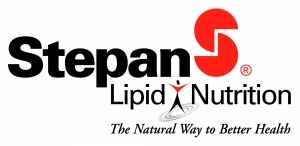By Lisa Olivo, Associate Editor12.06.18
Media scrutiny and increased government oversight in recent years have compelled companies in the dietary supplement industry to change how products are developed and validated.
A key catalyst for change was a 2015 investigation by then New York Attorney General (NYAG) Eric Schneiderman, which questioned the contents of herbal supplements sold at major retailers including Target, Walgreens, GNC, and Walmart. The NYAG relied on DNA barcode testing in the investigation, which industry experts countered was the incorrect testing method to analyze such products. Despite the fact that third-party, independent testing validated the contents of some of the products in question, the negative spotlight left many consumers and regulators concerned.
“In 2015, actions by the NYAG questioning the quality of botanical supplements based on the use of DNA-based tests brought attention to the importance of testing for determining the identity and quality of natural botanical products,” explained John Atwater, PhD, senior director of verification services, United States Pharmacopeia (USP), Rockville, MD. He suggested that while the resulting media frenzy affected the industry’s reputation, it brought attention to the important issue of supplement quality and safety, and “increased public interest in ways to promote quality assurance and trust.”
Testing and third-party certification have played a critical role in the industry’s efforts to rebound from this era of uncertainty, as manufacturers seek to assure consumers that dietary supplements continue to be safe and effective aids for health and wellness.
Jesse D. Miller, PhD, director, Applied Research Center, NSF International, Ann Arbor, MI, suggested the NYAG investigation bolstered self-regulation efforts within the industry. “Certification is now hand-in-glove with product reputation, impacting marketability and profitability, and is often a factor baked into product development just as any other business consideration.”
Increased consumer interest and knowledge is also leading to impactful change. “Consumers come to the industry equipped with a wealth of information, and have often educated themselves on what to look for to protect their health and safety,” said Dr. Miller. “Manufacturers that disregard the need for product certification and operational transparency, especially as supply chains grow increasingly global and complex, are rapidly going to find themselves left behind.”
Of course, under the law, U.S. Food and Drug Administration (FDA) regulation also demands specific product validation and testing, noted Darryl Sullivan, director, industry and regulatory affairs, Eurofins Food Integrity & Innovation, Madison, WI. “A major drive towards third-party testing and certification is the FDA Dietary Supplement GMP [Good Manufacturing Practice] rules,” he said. “These rules require laboratory testing of every product that is produced.”
Over the past 20 years that Alkemist Labs, Garden Grove, CA, has been in business, the dietary supplement industry has received “numerous punches in the face caused by avoidable blunders,” said CEO Elan Sudberg. Such missteps included adulteration scandals, contamination scandals, testing with the wrong method scandals, among others. “With each punch we have learned how to best navigate both compliance to sometimes-vague regulation, and staying in business.”
Forward-thinking brands are now leading marketing campaigns with information about product testing processes, supply chain transparency, and GMP adherence, he noted. For example, Mr. Sudberg pointed to the retail giant Amazon, whose supplement line Amazon Elements now dedicates significant real estate on its website to sharing lab results in the interest of transparency. “We are learning that not only has thorough testing become an integral part of the natural products industry, but also it’s a marketable competitive advantage.”
Overcoming Obstacles
When testing a nutritional formula, there are numerous hurdles companies and laboratories must overcome in order to ensure product integrity.
“Companies are challenged on multiple fronts, from supply to processing,” said NSF’s Dr. Miller. “On the supply side, materials adulteration—either deliberate or accidental—is a moving target. New adulteration ingredients and methods are developed every day, so it’s essential to affirm that the certifier is using the most current technology and expertise.”
In addition, Dr. Miller said processing idiosyncrasies of each product, such as heat treating, blending, siruping, sterilization, extraction, can impact a sample’s DNA, making it harder to differentiate ingredient species. He stressed that the certifier must possess a deep understanding of both the industry and its products.
However, from a testing standpoint, the primary challenge is determining the right test for a product, he added. “It’s important to understand the technologies at our disposal, and how to apply the correct method or combination of methods to the problem being solved. A methodology like next generation sequencing can be a useful tool, but rarely does it stand alone. As formulations and processes become more complex, taking a one-size-fits-most approach may be increasingly seen as reckless.”
USP’s Dr. Atwater pointed to two major obstacles that a company might face when testing dietary supplements, both of which are related to the scientific feasibility of testing the products. “First, one needs to have suitable chemical reference standards, such as USP Reference Standards that are highly purified, well-characterized chemical substances,” he explained.
“Secondly, one needs to have suitable analytical methodology (e.g., HPLC, GC, MS, NMR, ICP) with which to develop and validate a test procedure that has adequate specificity, accuracy, and precision.”
As methods of adulteration become more sophisticated, companies need to consider several approaches in order to guarantee the claims of “natural” products, cautioned Cristina Ramos, European operations manager, Beta Analytic, Miami, FL. “For example, there are several test methods that quality control and quality assurance departments use to detect adulteration (GC-MS, chiral testing, IRMS). However, only carbon-14 analysis can identify if there are petrochemical-derived synthetic adulterants in a product claiming to be 100% natural.”
Financial hurdles can also impact how companies approach testing dietary supplements, according to Alkemist Labs’ Mr. Sudberg. “A main challenge is probably cost, as increased adherence to regulations is constantly impacting P&L [profit and loss]. These costs must be defended to the bottom line and are quick to be focused upon by CFOs doing their job controlling expenses. These costs are often times recoupable when the product marketing reveals the lengths to which a company goes to ensure identity, potency, and quality. How much you test tells the world how much you care.“
Another challenge Mr. Sudberg identified is that, “in the race to differentiation within a particular category, many routine compendial methods quickly fall from fit-for-purpose.” He pointed to testing of green tea powdered extracts for caffeine content as an example, as this analysis can be done in numerous ways, most of which are agreed upon methods. However, green tea powdered extract combined with another ingredient “is an entirely different story and may require method development.”
The reduction in lab choices due to acquisitions is also changing the category. “There is a dwindling list of specialty labs and a few growing ‘unspecialty labs’ shrinking the testing lab options for special products,” said Mr. Sudberg.
The complex and varied composition of some natural products can lead to testing challenges, according to Eurofins’s Mr. Sullivan. “Some supplements may contain over 30 active ingredients that need to be tested. For a company to test these products using an ‘in-house’ lab requires a huge investment in laboratory facilities, equipment, and staff.” This, he said, is a prime reason many dietary supplement companies choose to use an experienced third-party testing lab.
Third-Party Certification
In a complex and rapidly evolving marketplace, many dietary supplement producers are relying on third-party certification to leverage their expertise and protect their brand’s reputation. “Independent, third-party certification is an important competitive advantage,” said NSF’s Dr. Miller, “which assures a product has been subject to an impartial review against established criteria, and that product and labeling claims have been objectively reviewed. Certification seals are evidence of an organization’s commitment to quality, compliance,
and safety.”
While certification seals are widely used, Mr. Sudberg of Alkemist Labs cautioned there are a growing number of “meaningless and fake ‘seals of approval’” within the supplement category. “NSF International is thought by many to be the most trusted of the seal of approval purveyors with their robust, thorough certification processes,” he noted. “That said, I am sure there is an entire team devoted to combatting fraudulent use of their seal, which is why it’s still important to audit, audit, audit, and then come back and audit some more.”
ISO 17025 certification (“General requirements for the competence of testing and calibration laboratories,”) is a significant distinction for a lab, but it is important to note that it is very specific in its application. Mr. Sudberg explained that “organizations must identify a specific scope including the exact methods, technology, equipment, and techniques. Usually this scope is fixed and extremely restricted, not allowing for even the slightest method deviation, and usually applies only to a small part of the procedures followed in a specific laboratory.”
As an example, he said a lab could be “accredited to the ISO 17025 standard for evaluation of silymarin content in milk thistle by HPLC using the USP method, but not for evaluation of those same compounds in the same material using another method or technology. Or a lab may be accredited to determine botanical identity of a specific plant by microscopy, but not by HPTLC.” He stressed that when a testing lab claims ISO accreditation, it’s important to check the scope of the accreditation to determine what it actually covers and not assume it is a blanket certification.
Alkemist Labs boasts a rare flexible scope ISO 17025 from the certifying organization A2LA, Mr. Sudberg explained. “Alkemist was granted A2LA’s P112 Flexible Scope Policy, which allows the lab discretion to adapt method parameters to a wide variety of preparations and products to best meet an array of changing customer needs, as long as they are scientifically valid per cGMP. This signifies great confidence in our quality management system and expertise to appropriately apply valid method parameters and optimize analyses for a wide variety of materials.” This certification is especially noteworthy in the realm of botanical identity testing, he added.
Alexander Schauss, PhD, senior director of research and CEO for AIBMR Life Sciences, Inc., Seattle, WA, said third-party certification bodies, or third-party auditors, are “only as good as the thoroughness performed to achieve certification and its ability to demonstrate to the client that they are meeting all regulatory requirements.”
Past professional experience has led him to a more tempered and skeptical perception of certification seals. “Having traveled around the world many times to audit manufacturers and ingredient suppliers, I have been dismayed by how many times the company being visited proudly shows me all of the certifications they have achieved only to see how many violations of GMPs and document maintenance I came across. Several domestic companies didn’t have a clue what Part 111 was or why it was important. What is critically important is that third-party audits are consistent in performing their duties, regardless of the type of certification or auditing that is performed (e.g., FSMA, FDA, HARPC compliance, PCQI certification, etc.), or where they are performed.“
Eurofins’ Mr. Sullivan said third-party seals have value as “they demonstrate a company’s commitment to compliance and quality.” However, he stressed that the challenge with such seals is that they are product specific, and many of them only capture the product compliance from one batch of product. “Since these seal programs are costly, companies need to weigh the cost/benefit of participation. Having your entire product covered under a seal program is usually cost prohibitive, so companies must choose which products to test.”
While there are numerous seals and certifications available to manufacturers, USP’s Dr. Atwater believes the most helpful third-party certifications are transparent in how the seal is earned. For example, he said, “it is important to be clear about what was done to earn the mark, to provide information about the company that stands behind the mark, and to provide a place where consumers can get additional information about program details if they want to know more. If not, a consumer may not know what a particular mark truly stands for.” This level of transparency can also help to promote consumer trust when the certifying party “is independent of the manufacturer, as self-certifying programs may not provide additional assurance of the quality of the product,” he added.
USP has its own dietary supplement verification program, and an associated mark—The USP Verified Mark. The USP Verified Mark signifies a dietary supplement: contains the ingredients listed on the label, in the declared strength and amounts; does not contain harmful levels of specified contaminants; was made in a facility that implements FDA and USP GMPs, using sanitary and well-controlled processes; and will break down and dissolve within a specified amount of time so the dietary ingredients can be released and absorbed by the body.
Trouble Ingredients
Certain ingredients and categories are plagued by adulteration (financially motivated or otherwise), making testing especially crucial. However, any ingredient or natural product can be susceptible to adulteration, warned Dr. Schauss with AIBMR. “Even fraudulent certification can be used illegally to mislead consumers into believing an ingredient or natural product is certified and that proper testing procedures are in place when neither is true.”
Commonly, adulterants are added to ingredients or supplements to increase the value of the product, explained Dr. Schauss, and often bad actors in the industry will substitute an expensive ingredient or product with a less expensive ingredient. “Establishing and implementing best practices for food safety compliance is a first step to prevent adulteration,” he stated. “Periodic random forensic testing methods and procedures should be applied to test an ingredient or natural product for possible adulteration. This is especially important to consider implementing whenever higher value ingredients or products incentivize economically motivated adulteration.”
Mr. Sullivan of Eurofins also pointed to more costly ingredients and products as areas of concern. “The list of ingredients that are adulterated changes every day. If the price of an ingredient suddenly increases, or becomes in short supply, it is viewed as an opportunity for adulteration. When companies are purchasing expensive ingredients and they suddenly find a supplier that is much cheaper—there is a good chance that the ingredient is adulterated.” He urged companies to invest in robust testing programs that ensure the ingredients they are purchasing are not adulterated. “This includes scientifically valid testing methods for ingredient identification, as well as purity. In many cases more than one test method is required.”
NSF’s Dr. Miller called botanical product alteration “a tempting shortcut for irresponsible manufacturers,” but noted that it has become increasingly common. For example, “adding illegal ingredients such as carcinogenic Sudan dyes can make a product seem more valuable but is obviously fraudulent and harmful.” Adulterant plant species can also be added as bulking agents in order to add mass. While this may not cause physical harm to consumers, it misrepresents the product. “Exemplary certification organizations will offer an array of methodologies such as next generation DNA sequencing, Fourier transform infrared spectroscopy (FTIR), and liquid chromatography-high-resolution mass spectrometry (LC-HRMS), which can be applied or combined to detect adulteration and protect a manufacturer’s commitment to safety and quality,” Dr. Miller said.
Prime targets of economically motivated adulteration include garlic oil, curcumin, vanilla, and or essential oils, said Ms. Ramos of Beta Analytic.
When it comes to specific categories of supplements, USP’s Dr. Atwater said sport, diet, and sexual enhancement products have been the target of adulteration with drug substances, rendering them illegal drug products marketed as dietary supplements. “Testing and certification, particularly where robust scientific standards are part of the program, are part of the solution. USP has developed a general chapter on adulteration of dietary supplements that are susceptible to adulteration. USP general chapter <2251> Screening for Undeclared Drugs and Drug Analogues currently addresses adulteration in sexual enhancement supplements, and will eventually address adulteration in weight loss and sports performance enhancement supplements.”
Specialty categories such as male enhancement (erectile dysfunction), bodybuilding, and weight loss seem to “draw the unscrupulous to our industry,” said Alkemist’s Mr. Sudberg. “These categories are fast moving, mostly sketchy, and generally sold through online sales channels.” He added that plants intended for those categories need to be closely monitored for adulteration.
For instance, he referenced the rise and fall of the once popular weight loss ingredient hoodia. “Hoodia is one example from a few years ago that burned hot and fast until it died. It was a plant that was slow to mature, endangered, and allegedly caused significant appetite cessation according to several studies. Pfizer even expressed interest in it for a while. At one point there was more hoodia sold than was harvested, which makes it pretty clear there was a lot of adulterated material reaching consumers. Thorough testing would have identified that before the material entered the manufacturing process.”
Dr. Atwater suggested that several factors can contribute to adulteration risk, “including the fact that dietary supplements are not subject to pre-market approval, the relative ease at which certain adulterants can be obtained, and even consumer interest and demand for spiked products. The lack of or failure to use test procedures with sufficient specificity also contributes to these situations.” He referenced ongoing efforts by organizations such as USP, the American Botanical Council (ABC), and American Herbal Pharmacopoeia (AHP) to target the prevention of adulteration in botanicals.
Fit-For-Purpose Testing
Fit-for-purpose testing is an important tool in demonstrating the efficacy of a dietary supplement, and is extremely important when validating a product for consumer use.
“A method is fit-for-purpose if sufficient testing has been performed to demonstrate acceptable method performance. This must be done measuring the analyte of interest in your product formulation, or a generic version,” explained Mr. Sullivan of Eurofins. “The most robust way to accomplish fitness for purpose is to use Compendial methods. These methods have been researched by standard-developing institutions and are accepted by regulatory agencies as fit-for-purpose.” For dietary supplements, Mr. Sullivan pointed to Compendial methods from AOAC International and USP as acceptable and useful sources. However, he noted that if a lab chooses a different method, then it must have data to demonstrate the precision, accuracy, and rigor of the test method.
A recent real-world challenge with fit-for-purpose testing involved probiotic supplements that are labeled at the strain level, said USP’s Dr. Atwater. “It is not uncommon to find dietary supplements marketing such products without the appropriate DNA-based test procedures needed to identify the probiotic species down to the strain level. USP has been working with probiotic manufacturers to develop monographs (i.e., quality standards with validated test procedures) for such products. USP also is actively verifying the quality of some such products, making sure that the manufacturers have validated identification test procedures.”
Botanical adulteration can occur in both rare and common food ingredients. Oregano is a common example, according to NSF’s Dr. Miller. “Consistent trends in the adulteration of commercial oregano point to the addition of many different species to bulk up the product, including olive, myrtle, cistus, sumac, and hazelnut leaves. Market globalization adds a new layer of challenge, as oregano can now be sourced from countries as disparate as the U.S., Mexico, Greece, and Turkey.”
Fit-for-purpose testing is routinely being conducted to determine if oregano is adulterated. “Recent fit-for-purpose testing on a lot of oregano utilized Fourier transform infrared spectroscopy (FTIR) to differentiate these adulterants from the true oregano, by observing their absorbance of light at particular wavelengths. FTIR identified visible differences in the ‘fingerprint’ between pure oregano and the adulterated sample.”
According to Dr. Schauss with AIBMR, the “key element of fit-for-purpose testing is that the parameter being measured is meaningful and accurate and able to satisfy regulatory scrutiny and sound analytical methodologies. If the analytical method is not the right one for the analyte being tested then it is not fit-for-purpose. When this occurs, the method should undergo additional method development.”
Harmonization Initiatives
While testing is essential to producing a quality dietary supplement, discrepancies between processes and procedures from lab to lab can make pinning down the best way to validate a product a sizeable obstacle. As a result, many industry experts are looking for ways to harmonize testing procedures to ensure ingredients or products are all being testing to the same set of standards.
Eurofin’s Mr. Sullivan said harmonization of testing procedures could “help the industry in astronomical ways.” Approaching testing with a “level playing field” would allow companies to use the same methods and compare the results on an equal basis, he said. “The standards efforts of AOAC International are doing just that: harmonizing testing standards so that data from different labs can be compared side by side. If there is a harmonized testing standard, then FDA would also use that method in its laboratories—which would be a huge benefit to industry.”
Alkemist Labs has participated in the American Herbal Products Association (AHPA), USP, and AOAC committees that work on harmonization efforts for years, and will continue to do so. “Still, the challenge exists that rarely are products just pure and simple botanicals or their extracts for which harmonized testing methods would apply,” said Mr. Sudberg. “This industry is known for creative and complicated mixtures, production techniques, and blends of materials, but the result in terms of testing is that methods are not harmonized and never can be due to the individuality of the products.”
USP participates in a number of international harmonization initiatives, which aim to improve global public health through the development of high-quality public standards. “USP works with pharmacopoeias, the World Health Organization (WHO), and other stakeholders to determine optimal ways to advance and sustain globally harmonized standards,” noted Dr. Atwater. “We see many benefits to sharing scientific resources and knowledge to ensure consistency and efficiency in the development of standards.” USP is currently working with other standards-setting organizations to ensure synergy in its efforts to develop quality standards for the dietary supplement industry that may be adopted and adapted for the global marketplace.
“Clearly standardization of processes is needed in this space, to ensure we are using and developing quality data and experiment design,” said NSF’s Dr. Miller. As it stands, two labs running similar or even identical experiments might use different platforms, different sample prep kits, and different data analysis tools, all factors which he said, “work against scientific efficiency and cohesiveness.” He stressed that reliable, consistent standards are needed anywhere measurement science is practiced.
A key catalyst for change was a 2015 investigation by then New York Attorney General (NYAG) Eric Schneiderman, which questioned the contents of herbal supplements sold at major retailers including Target, Walgreens, GNC, and Walmart. The NYAG relied on DNA barcode testing in the investigation, which industry experts countered was the incorrect testing method to analyze such products. Despite the fact that third-party, independent testing validated the contents of some of the products in question, the negative spotlight left many consumers and regulators concerned.
“In 2015, actions by the NYAG questioning the quality of botanical supplements based on the use of DNA-based tests brought attention to the importance of testing for determining the identity and quality of natural botanical products,” explained John Atwater, PhD, senior director of verification services, United States Pharmacopeia (USP), Rockville, MD. He suggested that while the resulting media frenzy affected the industry’s reputation, it brought attention to the important issue of supplement quality and safety, and “increased public interest in ways to promote quality assurance and trust.”
Testing and third-party certification have played a critical role in the industry’s efforts to rebound from this era of uncertainty, as manufacturers seek to assure consumers that dietary supplements continue to be safe and effective aids for health and wellness.
Jesse D. Miller, PhD, director, Applied Research Center, NSF International, Ann Arbor, MI, suggested the NYAG investigation bolstered self-regulation efforts within the industry. “Certification is now hand-in-glove with product reputation, impacting marketability and profitability, and is often a factor baked into product development just as any other business consideration.”
Increased consumer interest and knowledge is also leading to impactful change. “Consumers come to the industry equipped with a wealth of information, and have often educated themselves on what to look for to protect their health and safety,” said Dr. Miller. “Manufacturers that disregard the need for product certification and operational transparency, especially as supply chains grow increasingly global and complex, are rapidly going to find themselves left behind.”
Of course, under the law, U.S. Food and Drug Administration (FDA) regulation also demands specific product validation and testing, noted Darryl Sullivan, director, industry and regulatory affairs, Eurofins Food Integrity & Innovation, Madison, WI. “A major drive towards third-party testing and certification is the FDA Dietary Supplement GMP [Good Manufacturing Practice] rules,” he said. “These rules require laboratory testing of every product that is produced.”
Over the past 20 years that Alkemist Labs, Garden Grove, CA, has been in business, the dietary supplement industry has received “numerous punches in the face caused by avoidable blunders,” said CEO Elan Sudberg. Such missteps included adulteration scandals, contamination scandals, testing with the wrong method scandals, among others. “With each punch we have learned how to best navigate both compliance to sometimes-vague regulation, and staying in business.”
Forward-thinking brands are now leading marketing campaigns with information about product testing processes, supply chain transparency, and GMP adherence, he noted. For example, Mr. Sudberg pointed to the retail giant Amazon, whose supplement line Amazon Elements now dedicates significant real estate on its website to sharing lab results in the interest of transparency. “We are learning that not only has thorough testing become an integral part of the natural products industry, but also it’s a marketable competitive advantage.”
Overcoming Obstacles
When testing a nutritional formula, there are numerous hurdles companies and laboratories must overcome in order to ensure product integrity.
“Companies are challenged on multiple fronts, from supply to processing,” said NSF’s Dr. Miller. “On the supply side, materials adulteration—either deliberate or accidental—is a moving target. New adulteration ingredients and methods are developed every day, so it’s essential to affirm that the certifier is using the most current technology and expertise.”
In addition, Dr. Miller said processing idiosyncrasies of each product, such as heat treating, blending, siruping, sterilization, extraction, can impact a sample’s DNA, making it harder to differentiate ingredient species. He stressed that the certifier must possess a deep understanding of both the industry and its products.
However, from a testing standpoint, the primary challenge is determining the right test for a product, he added. “It’s important to understand the technologies at our disposal, and how to apply the correct method or combination of methods to the problem being solved. A methodology like next generation sequencing can be a useful tool, but rarely does it stand alone. As formulations and processes become more complex, taking a one-size-fits-most approach may be increasingly seen as reckless.”
USP’s Dr. Atwater pointed to two major obstacles that a company might face when testing dietary supplements, both of which are related to the scientific feasibility of testing the products. “First, one needs to have suitable chemical reference standards, such as USP Reference Standards that are highly purified, well-characterized chemical substances,” he explained.
“Secondly, one needs to have suitable analytical methodology (e.g., HPLC, GC, MS, NMR, ICP) with which to develop and validate a test procedure that has adequate specificity, accuracy, and precision.”
As methods of adulteration become more sophisticated, companies need to consider several approaches in order to guarantee the claims of “natural” products, cautioned Cristina Ramos, European operations manager, Beta Analytic, Miami, FL. “For example, there are several test methods that quality control and quality assurance departments use to detect adulteration (GC-MS, chiral testing, IRMS). However, only carbon-14 analysis can identify if there are petrochemical-derived synthetic adulterants in a product claiming to be 100% natural.”
Financial hurdles can also impact how companies approach testing dietary supplements, according to Alkemist Labs’ Mr. Sudberg. “A main challenge is probably cost, as increased adherence to regulations is constantly impacting P&L [profit and loss]. These costs must be defended to the bottom line and are quick to be focused upon by CFOs doing their job controlling expenses. These costs are often times recoupable when the product marketing reveals the lengths to which a company goes to ensure identity, potency, and quality. How much you test tells the world how much you care.“
Another challenge Mr. Sudberg identified is that, “in the race to differentiation within a particular category, many routine compendial methods quickly fall from fit-for-purpose.” He pointed to testing of green tea powdered extracts for caffeine content as an example, as this analysis can be done in numerous ways, most of which are agreed upon methods. However, green tea powdered extract combined with another ingredient “is an entirely different story and may require method development.”
The reduction in lab choices due to acquisitions is also changing the category. “There is a dwindling list of specialty labs and a few growing ‘unspecialty labs’ shrinking the testing lab options for special products,” said Mr. Sudberg.
The complex and varied composition of some natural products can lead to testing challenges, according to Eurofins’s Mr. Sullivan. “Some supplements may contain over 30 active ingredients that need to be tested. For a company to test these products using an ‘in-house’ lab requires a huge investment in laboratory facilities, equipment, and staff.” This, he said, is a prime reason many dietary supplement companies choose to use an experienced third-party testing lab.
Third-Party Certification
In a complex and rapidly evolving marketplace, many dietary supplement producers are relying on third-party certification to leverage their expertise and protect their brand’s reputation. “Independent, third-party certification is an important competitive advantage,” said NSF’s Dr. Miller, “which assures a product has been subject to an impartial review against established criteria, and that product and labeling claims have been objectively reviewed. Certification seals are evidence of an organization’s commitment to quality, compliance,
and safety.”
While certification seals are widely used, Mr. Sudberg of Alkemist Labs cautioned there are a growing number of “meaningless and fake ‘seals of approval’” within the supplement category. “NSF International is thought by many to be the most trusted of the seal of approval purveyors with their robust, thorough certification processes,” he noted. “That said, I am sure there is an entire team devoted to combatting fraudulent use of their seal, which is why it’s still important to audit, audit, audit, and then come back and audit some more.”
ISO 17025 certification (“General requirements for the competence of testing and calibration laboratories,”) is a significant distinction for a lab, but it is important to note that it is very specific in its application. Mr. Sudberg explained that “organizations must identify a specific scope including the exact methods, technology, equipment, and techniques. Usually this scope is fixed and extremely restricted, not allowing for even the slightest method deviation, and usually applies only to a small part of the procedures followed in a specific laboratory.”
As an example, he said a lab could be “accredited to the ISO 17025 standard for evaluation of silymarin content in milk thistle by HPLC using the USP method, but not for evaluation of those same compounds in the same material using another method or technology. Or a lab may be accredited to determine botanical identity of a specific plant by microscopy, but not by HPTLC.” He stressed that when a testing lab claims ISO accreditation, it’s important to check the scope of the accreditation to determine what it actually covers and not assume it is a blanket certification.
Alkemist Labs boasts a rare flexible scope ISO 17025 from the certifying organization A2LA, Mr. Sudberg explained. “Alkemist was granted A2LA’s P112 Flexible Scope Policy, which allows the lab discretion to adapt method parameters to a wide variety of preparations and products to best meet an array of changing customer needs, as long as they are scientifically valid per cGMP. This signifies great confidence in our quality management system and expertise to appropriately apply valid method parameters and optimize analyses for a wide variety of materials.” This certification is especially noteworthy in the realm of botanical identity testing, he added.
Alexander Schauss, PhD, senior director of research and CEO for AIBMR Life Sciences, Inc., Seattle, WA, said third-party certification bodies, or third-party auditors, are “only as good as the thoroughness performed to achieve certification and its ability to demonstrate to the client that they are meeting all regulatory requirements.”
Past professional experience has led him to a more tempered and skeptical perception of certification seals. “Having traveled around the world many times to audit manufacturers and ingredient suppliers, I have been dismayed by how many times the company being visited proudly shows me all of the certifications they have achieved only to see how many violations of GMPs and document maintenance I came across. Several domestic companies didn’t have a clue what Part 111 was or why it was important. What is critically important is that third-party audits are consistent in performing their duties, regardless of the type of certification or auditing that is performed (e.g., FSMA, FDA, HARPC compliance, PCQI certification, etc.), or where they are performed.“
Eurofins’ Mr. Sullivan said third-party seals have value as “they demonstrate a company’s commitment to compliance and quality.” However, he stressed that the challenge with such seals is that they are product specific, and many of them only capture the product compliance from one batch of product. “Since these seal programs are costly, companies need to weigh the cost/benefit of participation. Having your entire product covered under a seal program is usually cost prohibitive, so companies must choose which products to test.”
While there are numerous seals and certifications available to manufacturers, USP’s Dr. Atwater believes the most helpful third-party certifications are transparent in how the seal is earned. For example, he said, “it is important to be clear about what was done to earn the mark, to provide information about the company that stands behind the mark, and to provide a place where consumers can get additional information about program details if they want to know more. If not, a consumer may not know what a particular mark truly stands for.” This level of transparency can also help to promote consumer trust when the certifying party “is independent of the manufacturer, as self-certifying programs may not provide additional assurance of the quality of the product,” he added.
USP has its own dietary supplement verification program, and an associated mark—The USP Verified Mark. The USP Verified Mark signifies a dietary supplement: contains the ingredients listed on the label, in the declared strength and amounts; does not contain harmful levels of specified contaminants; was made in a facility that implements FDA and USP GMPs, using sanitary and well-controlled processes; and will break down and dissolve within a specified amount of time so the dietary ingredients can be released and absorbed by the body.
Trouble Ingredients
Certain ingredients and categories are plagued by adulteration (financially motivated or otherwise), making testing especially crucial. However, any ingredient or natural product can be susceptible to adulteration, warned Dr. Schauss with AIBMR. “Even fraudulent certification can be used illegally to mislead consumers into believing an ingredient or natural product is certified and that proper testing procedures are in place when neither is true.”
Commonly, adulterants are added to ingredients or supplements to increase the value of the product, explained Dr. Schauss, and often bad actors in the industry will substitute an expensive ingredient or product with a less expensive ingredient. “Establishing and implementing best practices for food safety compliance is a first step to prevent adulteration,” he stated. “Periodic random forensic testing methods and procedures should be applied to test an ingredient or natural product for possible adulteration. This is especially important to consider implementing whenever higher value ingredients or products incentivize economically motivated adulteration.”
Mr. Sullivan of Eurofins also pointed to more costly ingredients and products as areas of concern. “The list of ingredients that are adulterated changes every day. If the price of an ingredient suddenly increases, or becomes in short supply, it is viewed as an opportunity for adulteration. When companies are purchasing expensive ingredients and they suddenly find a supplier that is much cheaper—there is a good chance that the ingredient is adulterated.” He urged companies to invest in robust testing programs that ensure the ingredients they are purchasing are not adulterated. “This includes scientifically valid testing methods for ingredient identification, as well as purity. In many cases more than one test method is required.”
NSF’s Dr. Miller called botanical product alteration “a tempting shortcut for irresponsible manufacturers,” but noted that it has become increasingly common. For example, “adding illegal ingredients such as carcinogenic Sudan dyes can make a product seem more valuable but is obviously fraudulent and harmful.” Adulterant plant species can also be added as bulking agents in order to add mass. While this may not cause physical harm to consumers, it misrepresents the product. “Exemplary certification organizations will offer an array of methodologies such as next generation DNA sequencing, Fourier transform infrared spectroscopy (FTIR), and liquid chromatography-high-resolution mass spectrometry (LC-HRMS), which can be applied or combined to detect adulteration and protect a manufacturer’s commitment to safety and quality,” Dr. Miller said.
Prime targets of economically motivated adulteration include garlic oil, curcumin, vanilla, and or essential oils, said Ms. Ramos of Beta Analytic.
When it comes to specific categories of supplements, USP’s Dr. Atwater said sport, diet, and sexual enhancement products have been the target of adulteration with drug substances, rendering them illegal drug products marketed as dietary supplements. “Testing and certification, particularly where robust scientific standards are part of the program, are part of the solution. USP has developed a general chapter on adulteration of dietary supplements that are susceptible to adulteration. USP general chapter <2251> Screening for Undeclared Drugs and Drug Analogues currently addresses adulteration in sexual enhancement supplements, and will eventually address adulteration in weight loss and sports performance enhancement supplements.”
Specialty categories such as male enhancement (erectile dysfunction), bodybuilding, and weight loss seem to “draw the unscrupulous to our industry,” said Alkemist’s Mr. Sudberg. “These categories are fast moving, mostly sketchy, and generally sold through online sales channels.” He added that plants intended for those categories need to be closely monitored for adulteration.
For instance, he referenced the rise and fall of the once popular weight loss ingredient hoodia. “Hoodia is one example from a few years ago that burned hot and fast until it died. It was a plant that was slow to mature, endangered, and allegedly caused significant appetite cessation according to several studies. Pfizer even expressed interest in it for a while. At one point there was more hoodia sold than was harvested, which makes it pretty clear there was a lot of adulterated material reaching consumers. Thorough testing would have identified that before the material entered the manufacturing process.”
Dr. Atwater suggested that several factors can contribute to adulteration risk, “including the fact that dietary supplements are not subject to pre-market approval, the relative ease at which certain adulterants can be obtained, and even consumer interest and demand for spiked products. The lack of or failure to use test procedures with sufficient specificity also contributes to these situations.” He referenced ongoing efforts by organizations such as USP, the American Botanical Council (ABC), and American Herbal Pharmacopoeia (AHP) to target the prevention of adulteration in botanicals.
Fit-For-Purpose Testing
Fit-for-purpose testing is an important tool in demonstrating the efficacy of a dietary supplement, and is extremely important when validating a product for consumer use.
“A method is fit-for-purpose if sufficient testing has been performed to demonstrate acceptable method performance. This must be done measuring the analyte of interest in your product formulation, or a generic version,” explained Mr. Sullivan of Eurofins. “The most robust way to accomplish fitness for purpose is to use Compendial methods. These methods have been researched by standard-developing institutions and are accepted by regulatory agencies as fit-for-purpose.” For dietary supplements, Mr. Sullivan pointed to Compendial methods from AOAC International and USP as acceptable and useful sources. However, he noted that if a lab chooses a different method, then it must have data to demonstrate the precision, accuracy, and rigor of the test method.
A recent real-world challenge with fit-for-purpose testing involved probiotic supplements that are labeled at the strain level, said USP’s Dr. Atwater. “It is not uncommon to find dietary supplements marketing such products without the appropriate DNA-based test procedures needed to identify the probiotic species down to the strain level. USP has been working with probiotic manufacturers to develop monographs (i.e., quality standards with validated test procedures) for such products. USP also is actively verifying the quality of some such products, making sure that the manufacturers have validated identification test procedures.”
Botanical adulteration can occur in both rare and common food ingredients. Oregano is a common example, according to NSF’s Dr. Miller. “Consistent trends in the adulteration of commercial oregano point to the addition of many different species to bulk up the product, including olive, myrtle, cistus, sumac, and hazelnut leaves. Market globalization adds a new layer of challenge, as oregano can now be sourced from countries as disparate as the U.S., Mexico, Greece, and Turkey.”
Fit-for-purpose testing is routinely being conducted to determine if oregano is adulterated. “Recent fit-for-purpose testing on a lot of oregano utilized Fourier transform infrared spectroscopy (FTIR) to differentiate these adulterants from the true oregano, by observing their absorbance of light at particular wavelengths. FTIR identified visible differences in the ‘fingerprint’ between pure oregano and the adulterated sample.”
According to Dr. Schauss with AIBMR, the “key element of fit-for-purpose testing is that the parameter being measured is meaningful and accurate and able to satisfy regulatory scrutiny and sound analytical methodologies. If the analytical method is not the right one for the analyte being tested then it is not fit-for-purpose. When this occurs, the method should undergo additional method development.”
Harmonization Initiatives
While testing is essential to producing a quality dietary supplement, discrepancies between processes and procedures from lab to lab can make pinning down the best way to validate a product a sizeable obstacle. As a result, many industry experts are looking for ways to harmonize testing procedures to ensure ingredients or products are all being testing to the same set of standards.
Eurofin’s Mr. Sullivan said harmonization of testing procedures could “help the industry in astronomical ways.” Approaching testing with a “level playing field” would allow companies to use the same methods and compare the results on an equal basis, he said. “The standards efforts of AOAC International are doing just that: harmonizing testing standards so that data from different labs can be compared side by side. If there is a harmonized testing standard, then FDA would also use that method in its laboratories—which would be a huge benefit to industry.”
Alkemist Labs has participated in the American Herbal Products Association (AHPA), USP, and AOAC committees that work on harmonization efforts for years, and will continue to do so. “Still, the challenge exists that rarely are products just pure and simple botanicals or their extracts for which harmonized testing methods would apply,” said Mr. Sudberg. “This industry is known for creative and complicated mixtures, production techniques, and blends of materials, but the result in terms of testing is that methods are not harmonized and never can be due to the individuality of the products.”
USP participates in a number of international harmonization initiatives, which aim to improve global public health through the development of high-quality public standards. “USP works with pharmacopoeias, the World Health Organization (WHO), and other stakeholders to determine optimal ways to advance and sustain globally harmonized standards,” noted Dr. Atwater. “We see many benefits to sharing scientific resources and knowledge to ensure consistency and efficiency in the development of standards.” USP is currently working with other standards-setting organizations to ensure synergy in its efforts to develop quality standards for the dietary supplement industry that may be adopted and adapted for the global marketplace.
“Clearly standardization of processes is needed in this space, to ensure we are using and developing quality data and experiment design,” said NSF’s Dr. Miller. As it stands, two labs running similar or even identical experiments might use different platforms, different sample prep kits, and different data analysis tools, all factors which he said, “work against scientific efficiency and cohesiveness.” He stressed that reliable, consistent standards are needed anywhere measurement science is practiced.


























